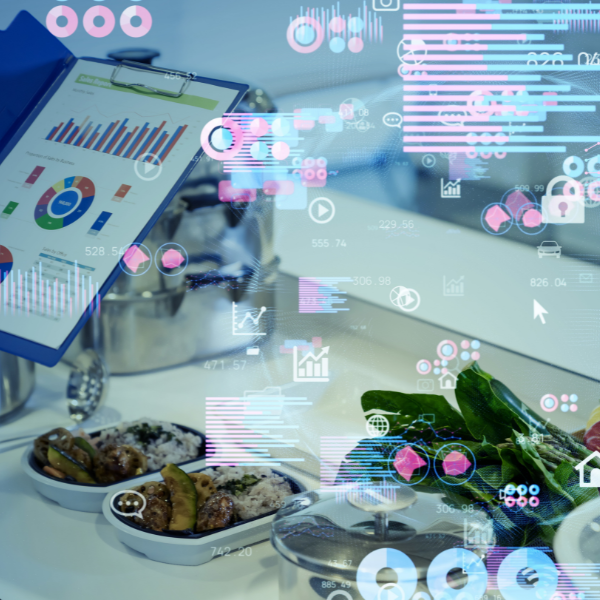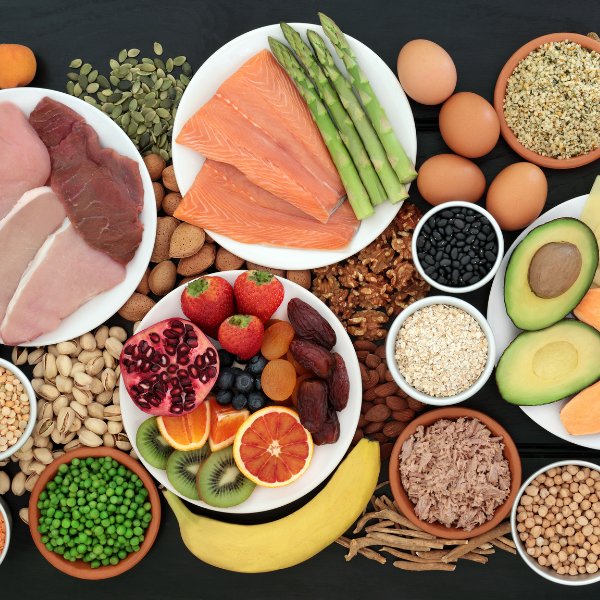Table Of Contents
What Are The Problems With Plastic In The Food Industry?
Single-use plastic products, such as utensils, plates, and straws, have become synonymous with convenience. However, the widespread use of these items has resulted in significant environmental challenges:
Environmental Pollution: Plastic waste is a major contributor to global pollution, with millions of tons ending up in oceans, landfills, and natural habitats. It takes hundreds of years for plastic to decompose, leading to long-term ecological damage.
Impact On Wildlife: Marine and terrestrial animals often mistake plastic for food, resulting in ingestion that can be fatal. This not only threatens biodiversity but also disrupts entire ecosystems.
Health Risks: Chemicals from plastic can leach into food and beverages, raising concerns about food safety and human health.

Exploring Solutions: How Can We Stop Using Single-Use Items?
Embrace Reusable Restaurant Products
One of the most effective ways to combat single-use plastic is by integrating reusable restaurant products into daily operations. Options include:
Eco-Friendly Glassware: Drinking glasses made from durable materials not only enhance the dining experience, but also significantly reduce the need for single-use cups. The aesthetic appeal and durability of eco-friendly glassware make them an attractive choice for restaurants.
Coffee Mugs And Tea Cups: Offering customers coffee mugs and tea cups can replace disposable options, fostering a more sustainable dining environment. These items can also promote a brand's commitment to sustainability.
Reusable Utensils: Swapping plastic utensils for reusable flatware reduces plastic waste while providing a more premium dining experience.
Implement Sustainable Takeout Solutions
For restaurants that offer takeout or delivery services, the choice of packaging can have a considerable impact on waste reduction. Consider the following alternatives:
Compostable Paper Takeout Containers: These containers break down naturally, minimizing environmental impact. They offer a practical solution for takeaway orders while maintaining food integrity.
PLA Plastic Supplies: Polylactic Acid (PLA) plastic and crystallized polyactic acid (CPLA) are derived from renewable resources and is biodegradable. PLA and CPLA supplies are an excellent alternative to traditional plastics, providing the convenience of disposability without long-term environmental consequences.
Promote Eco-Friendly Tableware
Tableware plays a crucial role in reducing single-use waste. Here are some eco-friendly alternatives:
Biodegradable Restaurant Supplies: Look for options made from natural materials that can decompose over time. This includes plates, bowls, and serving platters that reduce the reliance on plastic.
Palm Leaf Supplies: Made from fallen palm leaves, these biodegradable palm plates provide a sustainable and aesthetically pleasing way to serve food.
Utilize Eco-Friendly Straws
Straws are often overlooked in the discussion about single-use plastics, yet they contribute significantly to plastic waste. Consider the following alternatives:
Eco-Friendly Straws: Options made from bamboo, stainless steel, or compostable materials can replace traditional plastic straws. Encouraging customers to opt for eco-friendly straws can help reduce plastic waste in restaurants.
Embrace Sustainable Cleaning & Waste Management Solutions
Switching to reusable cleaning products and implementing effective waste management strategies can significantly minimize waste in restaurant operations and support a zero-waste model.
Cloth Cleaning Wipes: Instead of single-use paper towels, using cloth cleaning wipes can significantly cut down on paper waste. These can be washed and reused, providing a more sustainable option.
Compostable Trash Can Liners: Using compostable liners allows organic waste to be disposed of sustainably. These liners decompose along with the waste, reducing landfill contributions.
Recycling Programs: Establishing recycling programs can help separate waste and ensure that recyclable materials are processed correctly, further contributing to a more sustainable operation.
By adopting these practices, restaurants can effectively reduce their overall waste and enhance their commitment to sustainability.
The Benefits of Adopting Sustainable Practices
Transitioning away from single-use products offers numerous benefits for restaurants, including:
Cost Savings: While the initial investment in reusable products may be higher, the long-term savings on single-use items can be substantial.
Enhanced Brand Image: Consumers increasingly prefer brands that demonstrate social and environmental responsibility. Implementing sustainable practices can attract environmentally conscious customers.
Regulatory Compliance: Many regions are implementing regulations to reduce plastic waste. By adopting sustainable practices now, restaurants can stay ahead of potential legislation.
Green Restaurant Ideas
Here are some additional ideas to enhance sustainability in restaurant operations:
Encourage Customers To Bring Their Containers: Offer discounts for customers who bring their containers for takeout.
Educate Staff On Sustainability: Train employees on sustainable practices, ensuring they understand the importance of reducing single-use waste.
Host Events Focused On Sustainability: Organize events to promote eco-friendly practices, such as workshops on composting or sustainable cooking classes.

How Do You Reduce Plastic Waste When Dining Out?
Reducing plastic waste while dining out is a shared responsibility between restaurants and consumers. Here are some tips for consumers to consider:
Choose Restaurants That Prioritize Sustainability: Support establishments that use eco-friendly alternatives and sustainable practices.
Opt For Dine-In Over Takeout: Dine-in options typically use fewer disposables compared to takeout.
Bring Your Reusable Items: Carry a reusable water bottle or coffee mug when dining out to minimize waste.
Where Does The Majority Of Plastic Waste End Up?
What Are Some Common Misconceptions About Eco-Friendly Alternatives?

How Do Sustainable Practices Benefit A Restaurant's Bottom Line?
How Can Restaurants Measure The Impact Of Their Sustainability Efforts?

How Can Restaurants Handle Customer Resistance To Changes In Packaging?
Moving Toward A Sustainable Future
Eliminating single-use products in the restaurant industry is not just an option; it is a necessity. By embracing eco-friendly alternatives, implementing sustainable practices, and engaging customers in the effort, restaurants can significantly reduce their environmental footprint. The move towards sustainability offers both practical benefits and a chance to connect with a growing base of environmentally conscious patrons.
If you are ready to make a difference and learn more about incorporating sustainable practices into your restaurant operations, consider exploring the variety of eco-friendly solutions available. Sign up for our newsletter located at the bottom of our homepage to stay updated on the latest innovations in sustainable restaurant supplies, or schedule a consultation to discuss how your establishment can become a leader in eco-friendly practices. Together, we can work towards a greener future in the restaurant industry.











